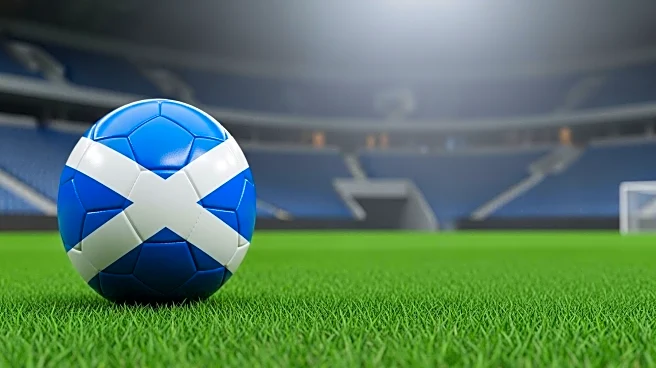What is the story about?
What's Happening?
Scotland secured a 2-0 victory over Belarus in the 2026 FIFA World Cup qualifiers held in Zalaegerszeg, Hungary. The match was played behind closed doors due to UEFA sanctions against Belarus for supporting Russia's invasion of Ukraine. Scotland's Ché Adams scored the first goal just before halftime, followed by an own goal from Belarus defender Zakhar Volkov in the 65th minute. The win places Scotland in a favorable position in Group C, with four points from two matches, following their draw against Denmark. The match was marked by the absence of fans, echoing the atmosphere of games during the COVID-19 pandemic.
Why It's Important?
The victory is crucial for Scotland as they aim to qualify for the World Cup for the first time since 1998. The sanctions against Belarus highlight the ongoing geopolitical tensions affecting international sports. Playing in a neutral venue without fans could impact team morale and performance, but Scotland managed to maintain focus and secure a win. This result strengthens Scotland's position in the qualifiers, providing them with momentum as they prepare for upcoming matches against Greece and Belarus at Hampden Park.
What's Next?
Scotland will face Greece and Belarus in their next qualifiers at Hampden Park, where they hope to capitalize on their strong start. The team aims to continue their winning streak and secure a spot in the World Cup finals. Belarus, on the other hand, will need to reassess their strategy as they face challenges both on and off the field due to the sanctions. The geopolitical situation may continue to affect Belarus's participation in international sports events.
Beyond the Headlines
The sanctions against Belarus reflect broader political dynamics and the intersection of sports and international relations. The decision to play in neutral venues without fans underscores the impact of political actions on sports, potentially influencing team performance and fan engagement. This situation may prompt discussions on the role of sports in diplomacy and conflict resolution.















